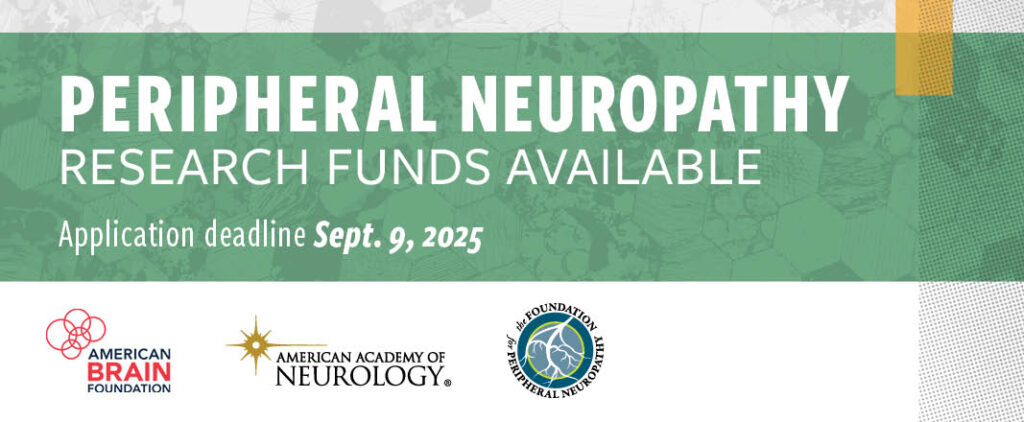Inaugural Clinical Research Training Scholarship Recipients Announced
Paula Barreras, MD, neuroimmunology fellow at Johns Hopkins Hospital and Erika Williams, MD, PhD, neuromuscular fellow at Massachusetts General Brigham are receiving the inaugural Clinical Research Training Scholarships (CRTS). Through these awards, FPN is providing $300,000 in peripheral neuropathy (PN) research funding.
Identifying Biomarkers and Pathogenic Mechanisms in Sarcoidosis-Associated Small Fiber Neuropathy
Barreras will study if small fiber neuropathy in sarcoidosis patients is driven by inflammation, and if so, if anti-inflammatory or immunosuppressive treatments will help. Sarcoidosis causes the growth of tiny collections of inflammatory cells in different parts of the body.
“I am very happy and grateful for this opportunity, and I hope I can have an impact on the understanding of this disease.“ – Paula Barreras, MD
Barreras was driven to apply for the CRTS because small fiber neuropathy is present in over 40% of patients with sarcoidosis and is an important cause of chronic pain and reduced quality of life, however we know very little about the causes of small fiber neuropathy in sarcoidosis. Barreras hopes to identify factors that can predict severity and disability due to small fiber neuropathy in this population, creating tools that can help counsel patients about prognosis and therapeutic decisions.
Mapping the Gene Expression of the Complex Peripheral Autonomic Nervous System
Williams will work to develop a gene expression map of the autonomic nervous system. The autonomic nervous system is a component of the peripheral nervous system that regulates involuntary processes, including heart rate, blood pressure, respiration and digestion. The autonomic nervous system’s function is impaired in certain diseases that also cause PN, like diabetes or amyloidosis.
“I know so many patients now with neuropathy through clinical life, and those are the stories that captured me and have brought me into the field.” – Erika Williams, MD, PhD
Williams applied for the CRTS in part because patients with autonomic dysfunction have substantial morbidity and mortality. Because the autonomic nervous system is complex and distributed, it can be very difficult to pin down exactly what is happening with it in different disease states. She is hopeful that her study will have widespread impacts. Since the peripheral autonomic nervous system is involved in essential functions to living and quality of life, this study will lead to better understanding of how the autonomic nervous system works and how it may be affected by certain diseases like diabetes.
Supporting Research in the Field
This is the best way to discover new treatments, and eventually cures. Awarded in collaboration with the American Academy of Neurology and the American Brain Foundation, the goal of the CRTS is to bring exciting new talent and vision to PN research. A scientific panel reviews all project submissions and $150,000 is awarded to each recipient for two years of research. The awards to Barreras and Williams are the first in this ongoing initiative, and an integral part of our overall resolve to fund more peripheral neuropathy research.







